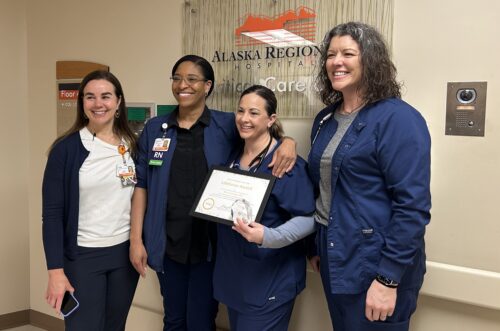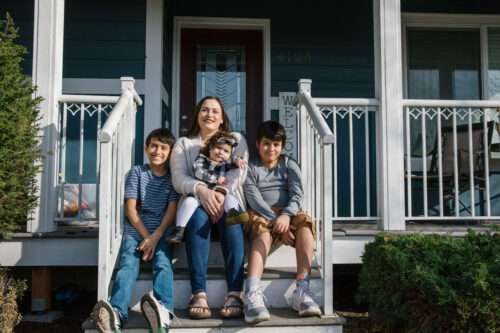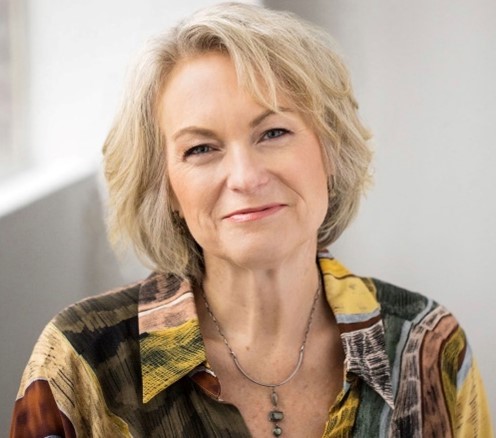The medical professionals we work with have a significant and direct influence on donation outcomes. Just as the geography and demographics of our vast service area differ from place to place, so does the donation experience. In an effort to celebrate the successes and highlight the unique obstacles of our donation partners, we interviewed leadership from around our region to ask why donation is important to them and what they enjoy most about living and working where they do. We are proud to feature Vickie Groeneweg, Chief Nursing Officer for Bozeman Health in Bozeman, Montana, as this month’s “Leader in Donation.”
 Bozeman Health is non-profit, integrated healthcare delivery system comprised of two hospitals, several specialty treatment centers, a network of physician and urgent care clinics, outpatient treatment facilities and retirement care, and assisted living facilities. Since 2016, Bozeman Health has had a total of six organ donors resulting in 22 lives saved through transplantation.
Bozeman Health is non-profit, integrated healthcare delivery system comprised of two hospitals, several specialty treatment centers, a network of physician and urgent care clinics, outpatient treatment facilities and retirement care, and assisted living facilities. Since 2016, Bozeman Health has had a total of six organ donors resulting in 22 lives saved through transplantation.
What does organ and tissue donation mean to you?
It means three things to me. First, when we have a patient that we know is going to become an organ donor, it’s generally a very difficult time for the family, but it also means we have the opportunity to honor the wishes of that patient or the family. Secondly, it’s a tremendous gift. It speaks to their compassion and their commitment to their fellow human beings, and it means that multiple people will have a better quality of life because of that loss. Third, when the caregivers and staff have committed to taking care of a patient, connect with a patient, and then lose that patient it helps the grieving process of the caregiver to know others have been given a better quality of life or life itself.
Key point: Many healthcare providers find comfort in the gift of donation along with the donor families.
What makes you most proud of working at your hospital and why?
One of our core values is people and that is one of the things I am most proud of – unanimously across the board – that the staff here care. They believe that what they are doing is a sacred calling, that it is a valuable service, and they are making a difference in the lives of people. They conduct themselves that way. Everyone from the direct nursing care nursing staff, the physicians, the housekeepers, the people who do registration, all give care to the patient. It’s our community, our friends and neighbors! It’s the feeling organization-wide that these are our friends and families and we are able to make a difference together.
Key point: Staff committed to the mission of the hospital typically have strong commitments to the organ donation process as organ and tissue donation often align closely with the hospital mission.
Why has your donation program been so successful/ what drives you to make donation a priority in your hospital?
I think it is tied back to my first two answers. We have a commitment to excellence. We strive for excellence with every patient, in every case. And because donation is such a valuable way to give life to others and to impact others’ lives it behooves us to do it as excellently as we can.
Key point: Strong processes and commitment from the hospital leadership and staff has been a key factor for Bozeman Health’s strong donation program, as six out of seven potential organ donors since 2016 have been realized.
What is unique about healthcare in your region?
We are talking about a state of one million people, large geographical area, and with few large institutions. Therefore, the whole state is our service area. We can’t send all our patients to a Level 1 or 2 trauma center, so we must be really good at what we do. When you look at Bozeman, we don’t have another hospital our size or larger for 130 miles one way and 90 miles the other. So, even though we are only an 86-bed hospital, we have to think bigger than those 86 beds. We provide services that many times are only offered in big centers because there is no other place to send patients. We have to be forward-thinking and consider what our community needs and what we can offer them so they can stay here and receive care. That’s what makes it unique. Plus, it’s our own community and we are responsible for their care and their quality of life. I can see patients in the hospital and then see them in the grocery store. That’s what makes healthcare in Montana unique.
What do you love about living in this community?
I can give you a hundred reasons. The first thing I love is the people. I love the friendliness of the people. I love the connectivity of the people. People in Montana will go out of their way to help you and support you. I appreciate the beauty of Montana. The beauty is breathtaking. The climate is not bad either! You might say we are the best kept secret in the country. I appreciate it because I felt like it was a place I could really grow in my career, and I’ve been given opportunities that I am grateful for. It’s been a good place to raise our family because it is a family community. We are an independent people, but we are also a dependent people. And best of all, we are an interdependent people—we depend on each other.





